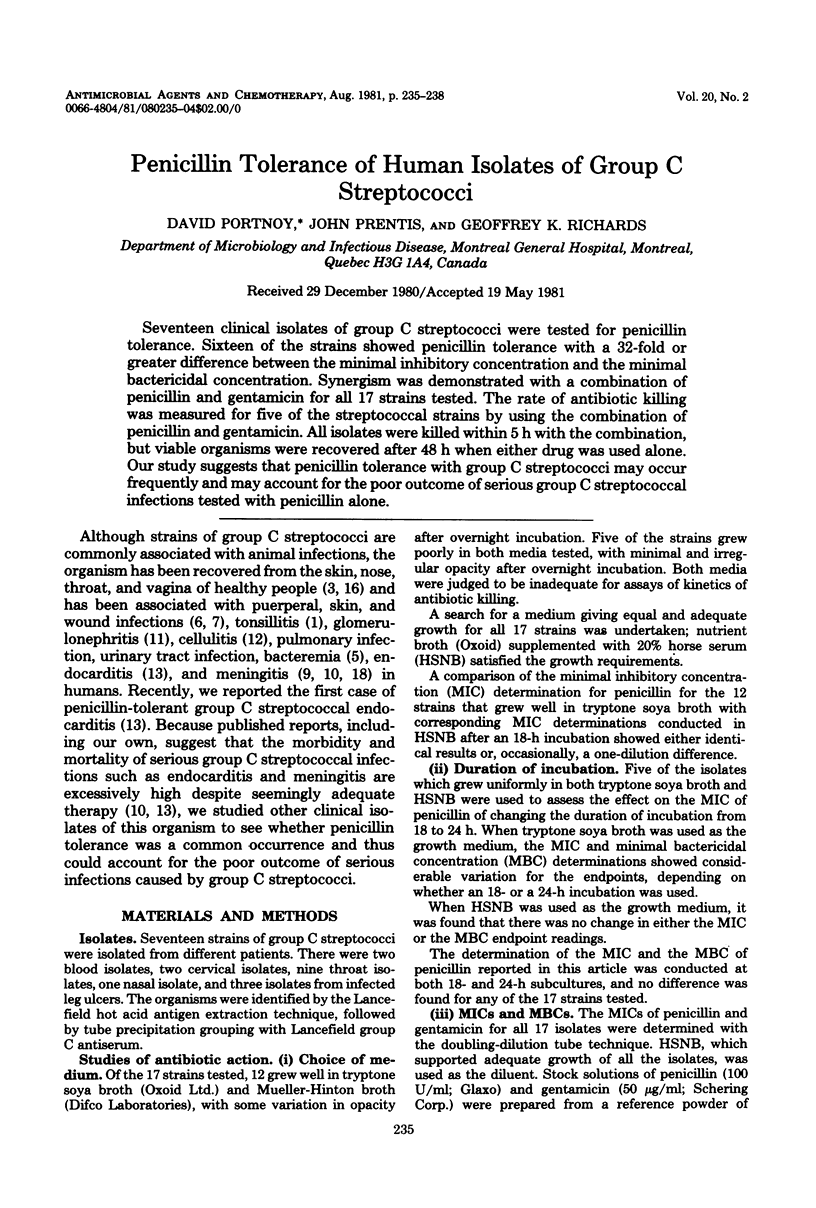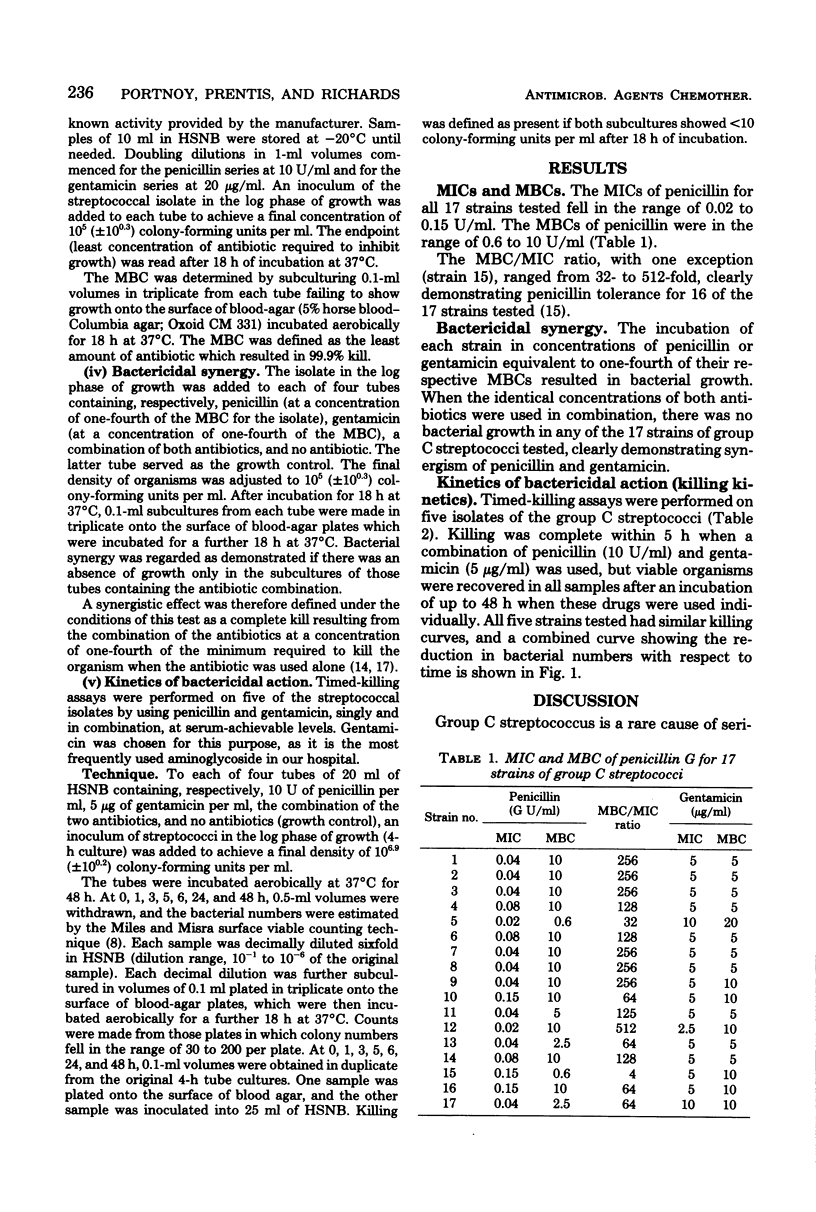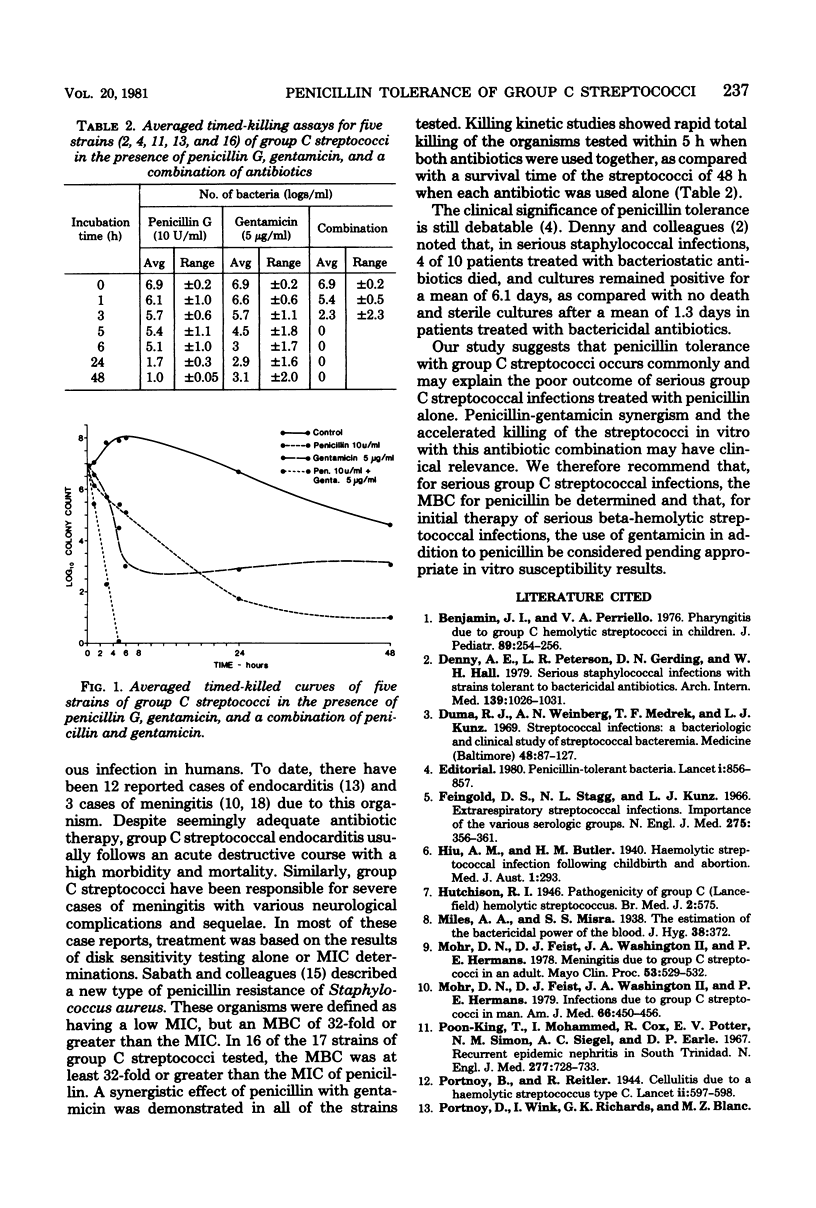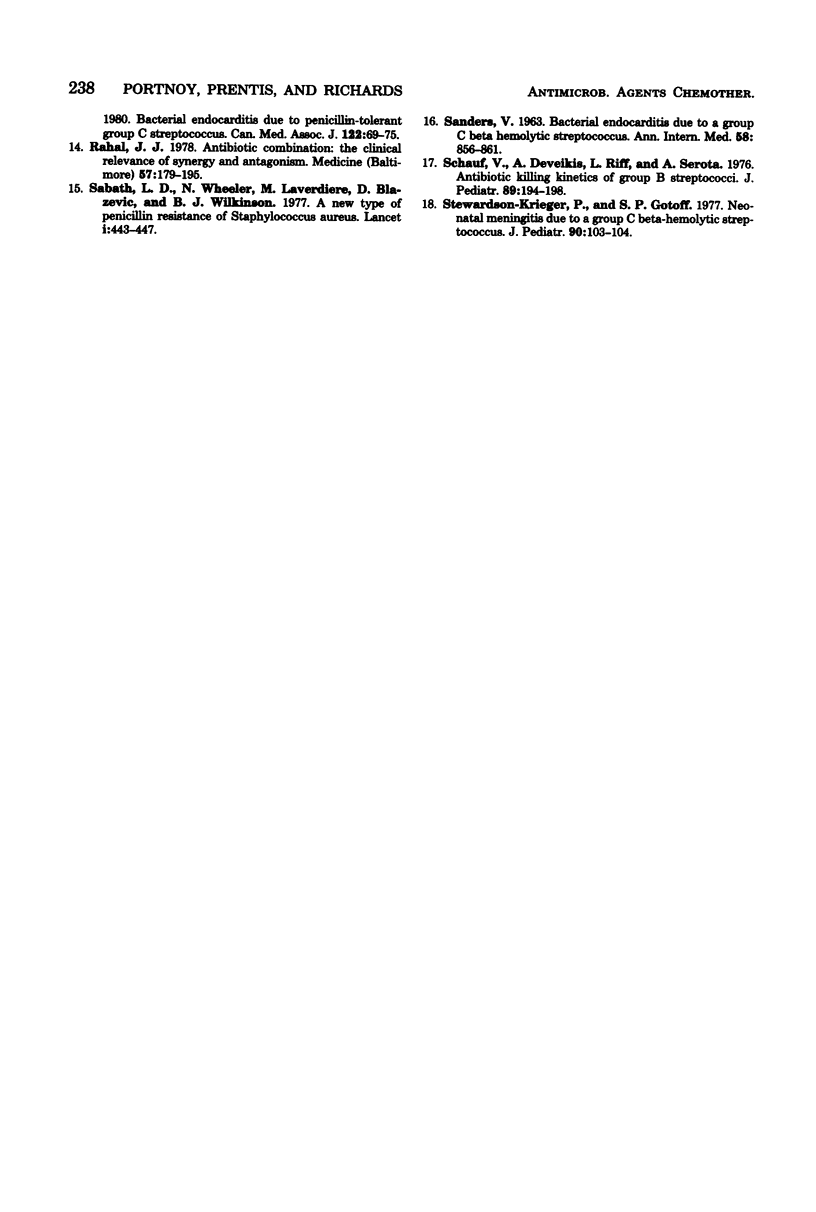Abstract
Seventeen clinical isolates of group C streptococci were tested for penicillin tolerance. Sixteen of the strains showed penicillin tolerance with a 32-fold or greater difference between the minimal inhibitory concentration and the minimal bactericidal concentration. Synergism was demonstrated with a combination of penicillin and gentamicin for all 17 strains tested. The rate of antibiotic killing was measured for five of the streptococcal strains by using the combination of penicillin and gentamicin. All isolates were killed within 5 h with the combination, but viable organisms were recovered after 48 h when either drug was used alone. Our study suggests that penicillin tolerance with group C streptococci may occur frequently and may account for the poor outcome of serious group C streptococcal infections tested with penicillin alone.
Full text
PDF



Selected References
These references are in PubMed. This may not be the complete list of references from this article.
- Benjamin J. T., Perriello V. A., Jr Pharyngitis due to group C hemolytic streptococci in children. J Pediatr. 1976 Aug;89(2):254–256. doi: 10.1016/s0022-3476(76)80459-3. [DOI] [PubMed] [Google Scholar]
- Denny A. E., Peterson L. R., Gerding D. N., Hall W. H. Serious staphylococcal infections with strains tolerant to bactericidal antibiotics. Arch Intern Med. 1979 Sep;139(9):1026–1031. [PubMed] [Google Scholar]
- Feingold D. S., Stagg N. L., Kunz L. J. Extrarespiratory streptococcal infections. Importance of the various serologic groups. N Engl J Med. 1966 Aug 18;275(7):356–361. doi: 10.1056/NEJM196608182750704. [DOI] [PubMed] [Google Scholar]
- HUTCHINSON R. I. Pathogenicity of Group C (Lancefield) haemolytic streptococcus. Br Med J. 1946 Oct 19;2(4476):575–575. [PMC free article] [PubMed] [Google Scholar]
- Mohr D. N., Feist D. J., Washington J. A., 2nd, Hermans P. E. Infections due to group C streptococci in man. Am J Med. 1979 Mar;66(3):450–456. doi: 10.1016/0002-9343(79)91067-2. [DOI] [PubMed] [Google Scholar]
- Mohr D. N., Feist D. J., Washington J. A., Hermans P. E. Meningitis due to group C streptococci in an adult. Mayo Clin Proc. 1978 Aug;53(8):529–532. [PubMed] [Google Scholar]
- Poon-King T., Mohammed I., Cox R., Potter E. V., Simon N. M., Siegel A. C., Earle D. P. Recurrent epidemic nephritis in South Trinidad. N Engl J Med. 1967 Oct 5;277(14):728–733. doi: 10.1056/NEJM196710052771403. [DOI] [PubMed] [Google Scholar]
- Portnoy D., Wink I., Richards G. K., Blanc M. Z. Bacterial endocarditis due to a penicillin-tolerant group C streptococcus. Can Med Assoc J. 1980 Jan 12;122(1):69-70, 75. [PMC free article] [PubMed] [Google Scholar]
- Rahal J. J., Jr Antibiotic combinations: the clinical relevance of synergy and antagonism. Medicine (Baltimore) 1978 Mar;57(2):179–195. [PubMed] [Google Scholar]
- Sabath L. D., Wheeler N., Laverdiere M., Blazevic D., Wilkinson B. J. A new type of penicillin resistance of Staphylococcus aureus. Lancet. 1977 Feb 26;1(8009):443–447. doi: 10.1016/s0140-6736(77)91941-9. [DOI] [PubMed] [Google Scholar]
- Schauf V., Deveikis A., Riff L., Serota A. Antibiotic-killing kinetics of group B streptococci. J Pediatr. 1976 Aug;89(2):194–198. doi: 10.1016/s0022-3476(76)80446-5. [DOI] [PubMed] [Google Scholar]
- Stewardson-Krieger P., Gotoff S. P. Neonatal meningitis due to group C beta hemolytic streptococcus. J Pediatr. 1977 Jan;90(1):103–104. doi: 10.1016/s0022-3476(77)80780-4. [DOI] [PubMed] [Google Scholar]


